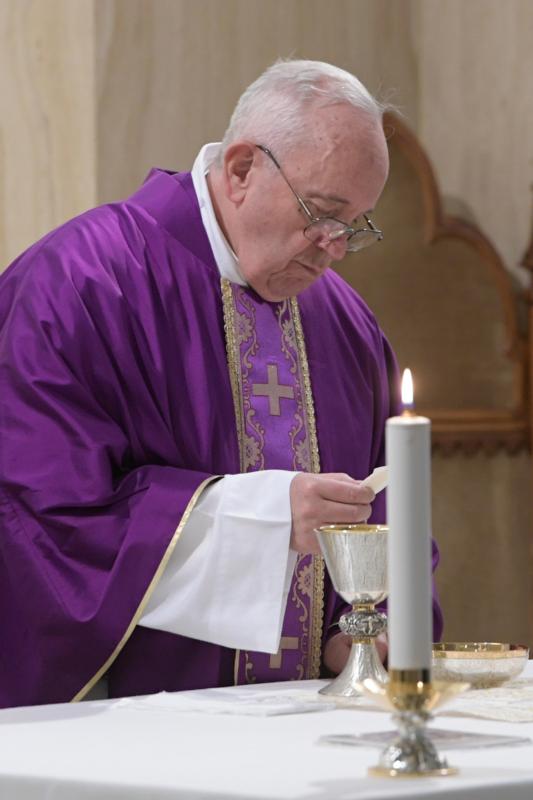By John L. Allen Jr.

ROME (Crux) – At a time of mounting anti-Christian persecution around the world, Pope Francis celebrated the memory March 10 of nine seminarians killed during the Spanish Civil War in the 1930s by revolutionary miners who had occupied the city of Oviedo.
Pope Francis noted that Angelo Cuartas Cristóbal and eight other seminarians were beatified March 10 in Orvieto, the final step before sainthood, which entitles them to be referred to as “blessed.”
“These young aspirants to the priesthood loved the Lord to the point of following him on the path of the cross,” the pope said. “May their heroic testimony help seminarians, priests and bishops to remain limpid and generous, in order to faithfully serve the Lord and the people of God.”
Pope Francis recognized Cuartas and his companions as martyrs killed in odium fidei, meaning “in hatred of the faith,” in November 2018. Cuartas was killed in 1934, the others in 1936-37. A sainthood cause for the seminarians was introduced in May 1993.
Pope Francis’ remarks came during his regular noontime Angelus address on Sunday, delivered from the window of the papal apartment overlooking St. Peter’s Square. Later on Sunday, Pope Francis was scheduled to leave along with the Vatican’s senior leadership by bus for the nearby town of Arricia, where the annual Lenten retreat will be held.
Since his election to the papacy almost six years ago, Pope Francis has commented frequently on the “new martyrs,” noting that more Christians are killed today for their faith than in the early centuries of the Church.
Meeting with members of the Equestrian Order of the Holy Sepulchre of Jerusalem in November 2018, the pope said that “the tragic situations of Christians who are persecuted and killed in ever-increasing numbers” is plain to see, even if the world “too often turns and looks away.”
Christians face not only “martyrdom in blood” in countries where they are persecuted and killed for the faith, he said, but also a “white martyrdom” in democratic countries that try more subtly to stifle religious freedom and expression.
Earlier in his Angelus address, Pope Francis reflected on Sunday’s Gospel reading describing the temptations of Jesus in the desert. The pope said they “indicate the three paths that the world always proposes, promising great success, three paths that deceive us.”
They are:
- Greed for possessions
- Human glory
- The instrumentalization of God
“These are the paths put in front of us, with the illusion of being able to obtain success and happiness,” Pope Francis said on a gray and drizzly Roman Sunday.
“But, in reality, they’re extraneous to God’s way of acting; indeed, they separate us from God, because they’re works of Satan,” the pope said.
“Facing these trials himself, Jesus defeated them three times in order to fully adhere to God’s project,” Pope Francis said. “He indicates to us the remedies: Interior life, faith in God, and the certainty of his love, that God loves us as a father. With that certainty we can overcome any trial.”
Pope Francis said that Jesus did not enter into a dialogue with the devil during his trials, but responded with the word of God.
“You can’t dialogue with the devil,” the pope warned.
“Let’s take advantage, therefore, of the period of Lent as a privileged time to purify ourselves, [and] to experience the consoling presence of God in our lives,” he said.
Pope Francis also greeted several pilgrimage groups on hand in St. Peter’s Square, including students and young people who’ve been recently confirmed.
Due to the Lenten retreat, Pope Francis’s normal Wednesday general audience is suspended this week. His next scheduled public appearance is Sunday, March 17, for the Angelus address.
